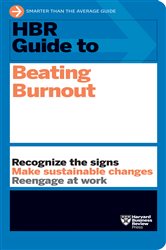
A Man’s Guide to Beating Burnout: Overcoming Exhaustion and Regaining Control
Written: editor | June 15, 2023

Introduction to Burnout
If you're feeling drained, overwhelmed, and exhausted from work or other areas of life, you may be experiencing burnout. It's important to understand what burnout is and how it can affect your mental and physical health.
Understanding burnout and its impact on mental and physical health
Burnout is a state of chronic stress that leads to physical, emotional, and mental exhaustion. It can affect anyone, regardless of their profession or lifestyle. When you're constantly pushing yourself to meet high demands and expectations without giving yourself time to rest and recharge, burnout can occur.
The consequences of burnout extend beyond feeling tired. It can negatively impact your overall well-being and quality of life. Some common symptoms of burnout include:
- Physical exhaustion
- Lack of motivation and energy
- Increased irritability and frustration
- Difficulty concentrating
- Decreased productivity
- Sleep disturbances
- Weakened immune system
Recognizing the signs and symptoms of burnout
It's important to recognize the signs and symptoms of burnout early on, so you can take steps to prevent it from worsening. Some signs to look out for include:
- Feeling emotionally drained and overwhelmed
- Loss of interest in activities you once enjoyed
- Chronic fatigue and lack of energy
- Frequent headaches or other physical ailments
- Increased cynicism and negativity
- Withdrawal from social activities
By identifying these signs and acknowledging that burnout is impacting your well-being, you can take proactive steps to beat burnout and regain balance in your life. Recognizing the signs is the first step towards taking action and implementing strategies to prevent and overcome burnout.

Causes of Burnout
Work-related stress and excessive workload
As an individual experiencing burnout, it is crucial to identify the causes that led to this state. One of the main factors is work-related stress and an excessive workload. When you consistently face overwhelming tasks and deadlines, it can lead to physical and emotional exhaustion. Additionally, a lack of control over your workload or feeling unsupported by colleagues or superiors can contribute to burnout.
Lack of job satisfaction and fulfillment
Feeling unfulfilled and dissatisfied in your job can be another significant cause of burnout. If you find that your work lacks meaning or purpose, and you are not able to utilize your skills and abilities fully, it can lead to a loss of motivation and energy. Additionally, a lack of recognition or advancement opportunities can also contribute to burnout.
Lifestyle factors contributing to burnout
It's important to recognize that burnout can also stem from lifestyle factors. Neglecting self-care, such as getting enough sleep, engaging in regular physical activity, and maintaining a healthy work-life balance, can leave you susceptible to burnout. Personal relationships, financial strain, and other external stressors can also impact your overall well-being and contribute to burnout.
By understanding the causes of burnout, you can take proactive steps to prevent and overcome it. This may include setting boundaries, seeking support from colleagues or a mentor, practicing self-care, and reassessing your career goals and aspirations. Remember, taking care of your well-being is essential in maintaining a healthy work-life balance and preventing burnout.

Strategies for Preventing Burnout
Setting boundaries and practicing work-life balance
To prevent burnout and maintain your well-being, it is crucial to establish boundaries and prioritize work-life balance. Here are some strategies to help you achieve this:
-
Set Clear Boundaries: Clearly define your working hours and stick to them. Avoid checking emails or taking work-related calls outside of these designated times.
-
Create Personal Time: Make sure to schedule regular breaks and time for activities you enjoy. This can help you recharge and reduce stress levels.
-
Say No: Learn to say no to additional responsibilities or tasks that exceed your capacity. Prioritize your workload and delegate when necessary.
Implementing effective time management techniques
Effective time management can help prevent burnout by improving productivity and reducing overwhelm. Consider these strategies:
-
Plan and Prioritize: Create a daily or weekly schedule outlining your tasks and goals. Prioritize essential tasks and allocate specific time slots for them.
-
Avoid Multitasking: Focus on one task at a time to maintain productivity and reduce stress. Complete each task before moving on to the next.
-
Take Regular Breaks: Break up your workday with short breaks to relax and recharge. Stepping away from your work can enhance focus and prevent burnout.
Identifying and addressing underlying issues
To effectively prevent burnout, it is important to identify and address any underlying issues contributing to your stress and exhaustion. Consider the following steps:
-
Self-Reflection: Take time to reflect on the causes of your burnout. Evaluate your work environment, workload, and personal factors that may be contributing to your stress.
-
Seek Support: Talk to a trusted colleague, mentor, or supervisor about your concerns. They may be able to provide guidance or help in finding solutions.
-
Seek Professional Help: If burnout symptoms persist or worsen, consider seeking support from a mental health professional. They can assist in addressing any underlying mental health issues and provide coping strategies.
Remember, preventing burnout is essential for maintaining your well-being and long-term success. Implement these strategies to proactively manage your workload and prioritize self-care.

Self-Care Practices for Beating Burnout
Prioritizing self-care and relaxation
When experiencing burnout, it's crucial to make self-care a priority. Take time for activities that replenish your energy and bring you joy. This could include spending quality time with loved ones, indulging in hobbies, or simply taking a break to relax. Set boundaries and learn to say no to excessive work demands, ensuring that you have time for yourself.
Incorporating regular exercise and physical activity
Exercise has been proven to reduce stress levels and promote overall well-being. Make it a point to incorporate regular physical activity into your daily routine. This could be as simple as going for a walk, practicing yoga, or hitting the gym. Find activities that you enjoy and commit to making them a regular part of your life.
Exploring mindfulness and stress-reducing techniques
Practicing mindfulness can help you manage stress and prevent burnout. Techniques such as meditation, deep breathing exercises, and journaling can provide a sense of calm and clarity. Incorporate these practices into your daily routine to help you stay grounded and focused.
Remember, beating burnout is a journey that requires consistent self-care and prioritization. By taking care of yourself physically, emotionally, and mentally, you can prevent burnout and maintain a healthy work-life balance. Don't be afraid to seek support from friends, family, or professionals if you need assistance in managing burnout. Your well-being is worth investing in.

Seeking Support and Professional Help
Building a support network
When facing burnout, it's essential to reach out and build a strong support network. Surrounding yourself with understanding and empathetic individuals can provide the emotional support you need. Friends, family, or colleagues who have gone through similar experiences can offer valuable advice and lend a listening ear. Additionally, consider joining support groups or online communities where you can connect with others who are also dealing with burnout. Remember, you don't have to go through this alone.
Utilizing resources and seeking professional guidance
Take advantage of resources available to you. Look for educational materials, articles, or books that can help you better understand burnout and provide practical strategies for coping. Additionally, consider seeking professional guidance from a career coach or mentor who can provide insights and guidance tailored to your specific situation. They can assist you in finding a healthy work-life balance and help you develop strategies to prevent burnout in the future.
Understanding the role of therapy in overcoming burnout
Therapy can be immensely beneficial in overcoming burnout. A therapist can help you identify and address the underlying causes of your burnout, develop healthy coping mechanisms, and provide a safe space for you to express your thoughts and feelings. Therapy can also equip you with effective stress management techniques and help you regain a sense of control in your life. If you're unsure about therapy, consider reaching out to a mental health professional who can guide you through the process and help you determine if therapy is a suitable option for you.
Remember, beating burnout is a journey, and it's essential to be patient and kind to yourself as you navigate through it. Seeking support and professional help can be crucial steps towards overcoming burnout and regaining your well-being.

Developing Healthy Coping Mechanisms
Identifying and challenging negative thought patterns
When facing burnout, it's important to become aware of negative thought patterns that contribute to stress and fatigue. Take time to identify thoughts that are self-defeating or overly critical. Challenge these thoughts by asking yourself if they are based on evidence or if there are alternative perspectives. Replace negative thoughts with positive or realistic ones.
Practicing positive affirmations and self-reflection
Positive affirmations are powerful tools for overcoming burnout. Create a list of positive statements that resonate with you and repeat them regularly. They can help counteract negative self-talk and foster a more optimistic mindset. Additionally, engaging in self-reflection can provide valuable insights into the causes and triggers of burnout. Set aside time to journal or meditate and gain a deeper understanding of your emotions and needs.
Engaging in hobbies and activities for enjoyment
Find activities that bring you joy and make time for them regularly. Whether it's exercising, painting, playing an instrument, or spending time in nature, immersing yourself in activities that you enjoy can help combat burnout. Make these hobbies a priority and incorporate them into your routine.
By developing healthy coping mechanisms, you can effectively beat burnout and restore balance in your life. Remember to prioritize self-care, set boundaries, and seek support from friends, family, or professionals if needed. Taking care of yourself is essential for long-term well-being and success.

Creating a Healthy Work Environment
Are you feeling overwhelmed and burned out from work? It's time to take a step back and prioritize your well-being. By creating a healthy work environment, you can beat burnout and find a better work-life balance.
Promoting open communication and teamwork
1. Foster a culture of open communication: Encourage team members to voice their opinions, concerns, and ideas. Create a safe and supportive environment where everyone feels comfortable speaking up. This can help prevent misunderstandings and conflicts that contribute to burnout.
2. Encourage collaboration and teamwork: Foster a sense of camaraderie among your team members. Encourage them to work together, share responsibilities, and support each other. This can reduce workloads and enhance productivity, giving each team member the opportunity to focus on their strengths.
3. Set realistic expectations: Avoid overloading your team with an unrealistic amount of work. Communicate clear goals, deadlines, and priorities. Encourage open discussions about workload and help team members manage their time effectively. This will prevent burnout caused by excessive stress and pressure.
4. Provide resources and support: Ensure that your team has the necessary tools, training, and support to carry out their tasks efficiently. Offer professional development opportunities and encourage a healthy work-life balance. Providing resources and support can prevent burnout by empowering your team and enabling them to succeed.
Creating a healthy work environment takes effort and commitment, but the rewards are worth it. By promoting open communication, teamwork, setting realistic expectations, and providing resources and support, you can beat burnout and create a positive work atmosphere where everyone can thrive.

Conclusion
In conclusion, beating burnout is not an easy task, but it is essential for your well-being and productivity. By understanding the signs and symptoms of burnout and taking proactive steps to manage it, you can prevent it from taking a toll on your physical and mental health. Remember to prioritize self-care, set boundaries, practice stress-management techniques, and seek support when needed. Take small steps every day towards creating a healthier work-life balance and reclaiming your energy and enthusiasm. With dedication and perseverance, you can overcome burnout and thrive in both your personal and professional life.
Frequently Asked Questions about burnout and its management
Q: What are the common signs of burnout?
A: The common signs of burnout include chronic fatigue, lack of motivation, decreased productivity, cynicism, and physical symptoms like headaches and stomachaches.
Q: How can I prevent burnout?
A: To prevent burnout, it is important to prioritize self-care, set healthy boundaries, practice stress-management techniques, establish a work-life balance, and seek support when needed.
Q: How can I recover from burnout?
A: Recovering from burnout requires taking a break, reevaluating priorities, practicing self-care, seeking professional help if necessary, and gradually reintroducing work responsibilities at a manageable pace.
Q: When should I seek professional help for burnout?
A: If you are experiencing severe symptoms of burnout that significantly impair your daily functioning and well-being, it is advisable to seek professional help from a therapist or counselor.
Remember to listen to your body and mind, and take proactive steps to prevent and manage burnout. Your well-being is important, and by prioritizing self-care and setting healthy boundaries, you can beat burnout and thrive both personally and professionally.



